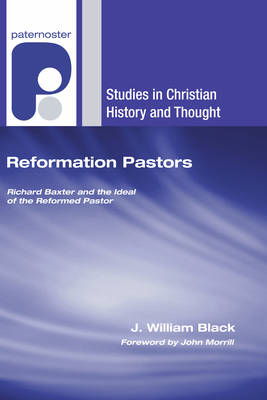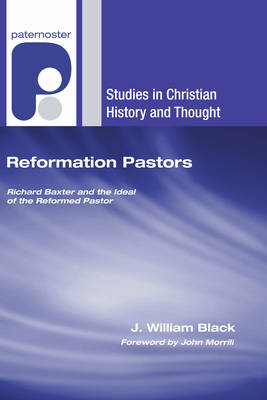
- Retrait gratuit dans votre magasin Club
- 7.000.000 titres dans notre catalogue
- Payer en toute sécurité
- Toujours un magasin près de chez vous
- Retrait gratuit dans votre magasin Club
- 7.000.0000 titres dans notre catalogue
- Payer en toute sécurité
- Toujours un magasin près de chez vous
Description
This work examines Richard Baxter's understanding and practice of pastoral ministry from the perspective of his own stated concern for reformation and in the broader context of Edwardian, Elizabethan, and early Stuart pastoral ideals and practice. It investigates Baxter's major treatise on pastoral ministry, 'Gildas Salvianus, the Reformed Pastor' (1656), and explores the background of each aspect of his pastoral strategy. Far from being novel, Baxter's practice of pastoral ministry certainly reflects aspects of his puritan predecessors' practice, if not their rhetoric. Black argues, however, that the primary contours of Baxter's ministry look back, not to the puritan pastoral ideals and strategies dominant after the Elizabethan Settlement, but to the Edwardian reformation emphases of the exiled Strasbourg reformer Martin Bucer. The book concludes by considering the impact of Baxter's pastoral legacy, both on the lives of individual pastors and on the subsequent discussion of puritan ministry. Black's book is a distinguished one, shedding new light not only on a neglected aspect of a giant amongst the godly Protestants of the English Reformation but on the personal dilemmas that face any pastor confronting the confusion and helpless frailty of the bulk of humanity. --John Morrill, University of Cambridge Thanks are due to Dr. Black for giving us this workmanlike exploration of Richard Baxter's epoch-making ministry at Kidderminister in its wider context. His book fills a gap in our historical knowledge most competently, and warms the Christian heart too. --J. I. Packer, Regent College Richard Baxter was the most influential puritan in Stuart England, whose writings on the ordained ministry in the 1650s were to prove seminal for Protestant understanding and practice for centuries. Dr. Black's searching and scholarly analysis traces the pedigree of Baxter's understanding of the ordained ministry to the work of the Strasbourg reformer Martin Bucer. He provides an authoritative account of the theological context of Baxter's role in the formation of County Associations of ministers in the 1650s, designed to cope with the pastoral crisis precipitated by civil war and the collapse of the Elizabethan Settlement, and he offers the most thorough analysis to date of the pastoral presuppositions underlying Baxter's revolutionary rethinking of the role of preaching and catechesis in parochial ministry. This book is essential reading for anyone who wishes to understand the development of Protestant pastoral practice in early modern England, and it throws new and unexpected light on the reformation inheritance of seventeenth century Puritanism. --Eamon Duffy, University of Cambridge J. William Black received his BA from Duke University, his MDiv from Gordon-Conwell Theological Seminary, and his PhD from the University of Cambridge. An ordained minister of the Presbyterian Church (USA), he has served churches in North Carolina and Pennsylvania and has taught students preparing for Christian ministry in Addis Ababa, Ethiopia.
Spécifications
Parties prenantes
- Auteur(s) :
- Editeur:
Contenu
- Nombre de pages :
- 338
- Langue:
- Anglais
- Collection :
Caractéristiques
- EAN:
- 9781597527682
- Date de parution :
- 01-01-07
- Format:
- Livre broché
- Format numérique:
- Trade paperback (VS)
- Dimensions :
- 150 mm x 214 mm
- Poids :
- 467 g

Les avis
Nous publions uniquement les avis qui respectent les conditions requises. Consultez nos conditions pour les avis.






